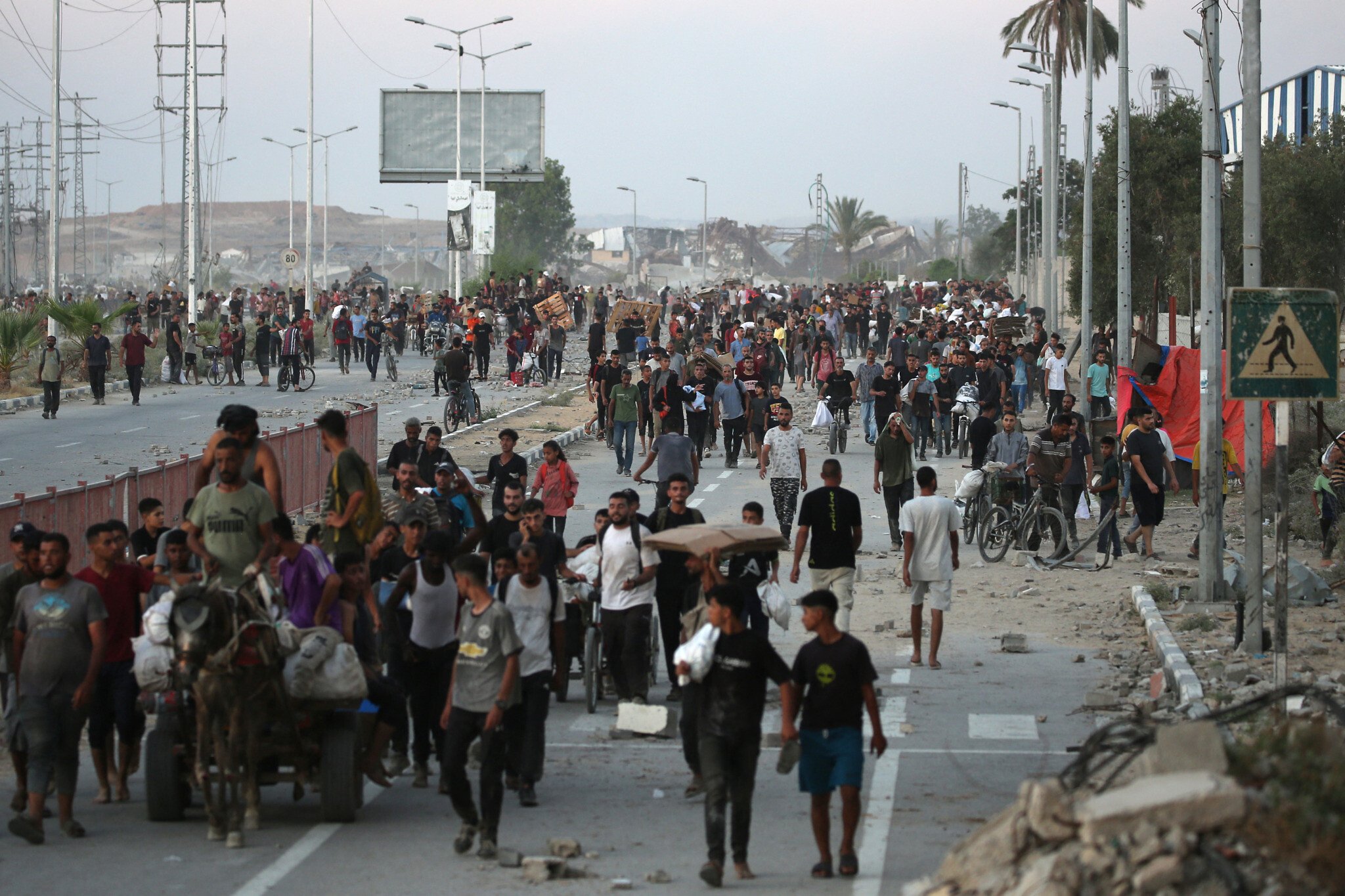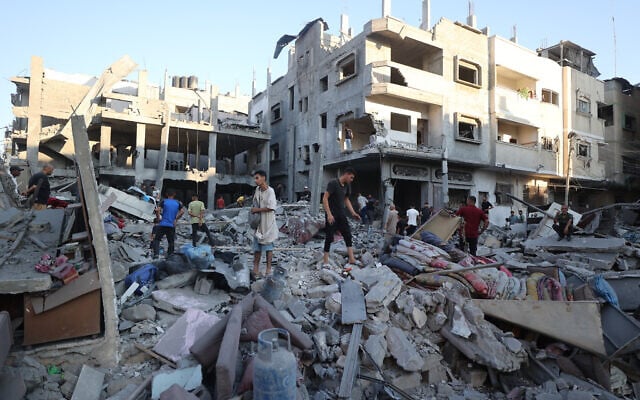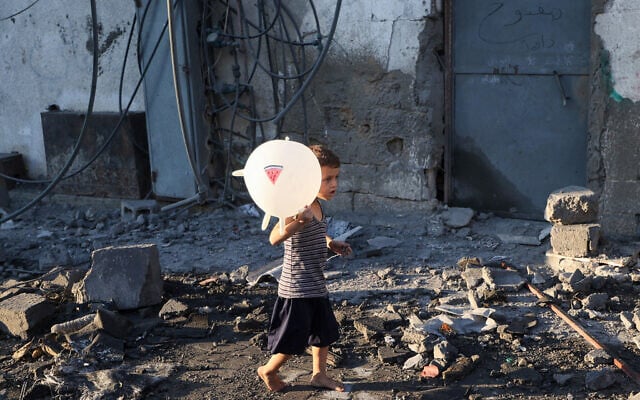



Mediators fumed at Hamas on Wednesday over what they felt was its “unacceptable” response to the latest proposal for a Gaza ceasefire and hostage release agreement, a source involved in the mediation effort told The Times of Israel.
The Hamas response was submitted late Tuesday night after days of what some of the mediators maintained was foot-dragging by the terror group.
Mediators last week were bullish about the chances of an imminent agreement after Israel came down from many of its demands regarding the scope of its troop presence in Gaza during the two-month truce under discussion.
But the response submitted by Hamas demanded that Israel further withdraw toward the Gaza border, the source said, adding that the group also submitted amendments regarding guarantees from the mediators to make it harder for Israel to resume the war after the 60-day truce; more clear-cut language ending the operations of the controversial Gaza Humanitarian Foundation; and raising the ratio of security prisoners who will be released for each Israeli hostage, an Arab diplomat familiar with the negotiations said.
Hamas is divided about whether to take a more hardline approach or to make the compromises necessary to secure a deal, said the source involved in the mediation efforts, who adds that the group opted to adopt the former approach in order to maintain consensus.
The Egyptian and Qatari mediators told Hamas that they would not present the group’s response to US special envoy to the Mideast Steve Witkoff and demanded that it submit a softened proposal, the source said, adding that the mediators’ frustration with Hamas continues to mount.
One of those mediators is Bishara Bahbah — a Palestinian-American businessman and a campaign surrogate for US President Donald Trump during the previous election. He has passed along messages from the US to Hamas, playing an integral role in the release of American-Israeli hostage Edan Alexander in May.
Bahbah spoke out publicly against Hamas, tweeting from Doha that the group’s “procrastination has cost the Palestinian people dozens of victims daily.”
“There is no convincing reason for delaying the response or demanding non-essential amendments,” he wrote, adding that Hamas can raise outstanding issues during the subsequent negotiations that will take place once the 60-day truce is in place.
“Let us move forward with a deal with American guarantees that allows everyone to negotiate to reach a permanent ceasefire,” Bahbah said.
Meanwhile, an official familiar with the negotiations said that Strategic Affairs Minister Ron Dermer — Prime Minister Benjamin Netanyahu’s confidant and the head of Israel’s hostage negotiating team — is slated to meet with Witkoff in Rome on Thursday. The two will be joined by a senior Qatari official involved in the mediation efforts, the official said.
US State Department spokesperson Tammy Bruce announced on Tuesday that Witkoff was heading “to the Gaza area,” sparking instant optimism that a deal was near, even though Hamas at that point hadn’t even submitted its response to the latest truce proposal.
But Bruce’s announcement appeared to have been the result of a miscommunication, with the State Department subsequently clarifying that no trip to Doha for Witkoff has been set yet.
Negotiators have said the US envoy will only join the talks when they are ready to be finalized. The official familiar with the talks said that if enough progress is made as a result of the Rome meeting, Witkoff will join the negotiators in Doha.
“We want this ceasefire to happen as soon as possible and we want these hostages to be released,” White House press secretary Karoline Leavitt said during a Wednesday press briefing.
Proximity negotiations have been taking place in Doha since July 6, with the deal on the table envisioning the release of 10 living hostages and the bodies of 18 slain hostages in exchange for a yet-to-be-agreed-upon number of Palestinian security prisoners during a 60-day truce.
Once the temporary ceasefire commences, the sides will hold talks on the terms of a permanent ceasefire and the release of the remaining 22 hostages, around 10 of whom are believed to be alive.


